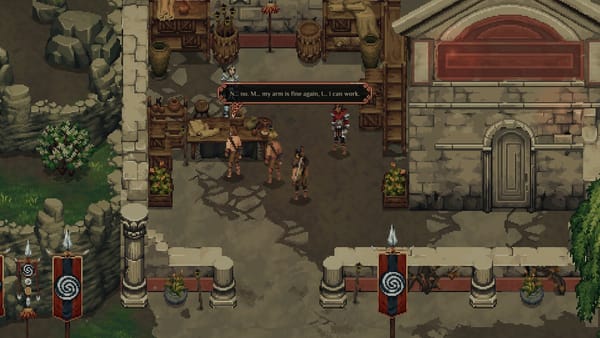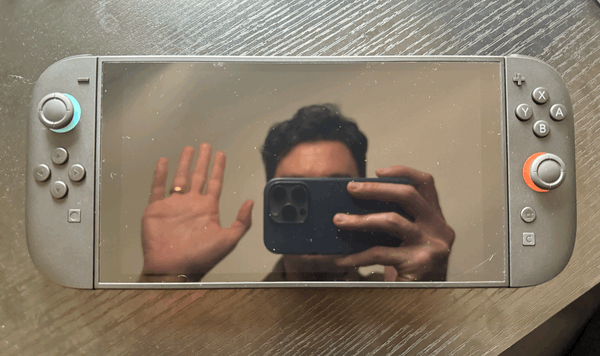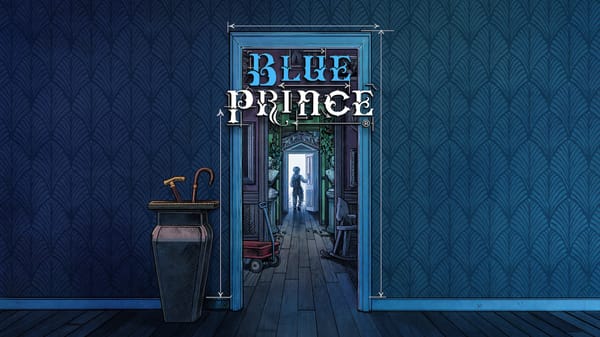Persona 3 Portable and people pleasing
A mirror held up to a mirror
Persona 4 is to Persona 3 what Tears of the Kingdom is to Breath of the Wild.
Okay, now that I’ve got your attention, here’s a completely unrelated post.
The thing that sets the protagonist apart from their cohorts in Persona 3, 4, and 5 is that they alone can hold multiple Personas at once. Mechanically, this means you can capture, Pokémon-like, a variety of beings with a variety of abilities, making you into a jack-of-all-trades party member, rounding out the more set-in-stone abilities of your chosen party members. Narratively, this lack of a singular personality as expressed through a weird-creature-monster is often explained as some kind of special ability, spoken of with reverence, and often as explanation for why it is that only you can save the world from, like, God or society or entropy or whatever. (If you’re not already familiar, Persona gets weird.)
But having played (and mostly loved) the modern Persona games, I’ve come around to thinking of the Persona-swapping ability of the main character as a manifestation of their desire to be whomever others want them to be. Which is to say, the main characters of Persona 3, 4, and 5 all suffer from being chronic people pleasers, a pattern of behavior each game subtly encourages in the player through their mechanics, which, as a recovering people pleaser myself, made me sad in a low, burbling kind of way.
Let’s stick with Persona 3 for a second, and specifically Persona 3 Portable, which I played this year for the first time. Persona 4 Golden is one of my favorite games of all time,1 and I liked-a-great-deal-but-maybe-didn’t-absolutely-love Persona 5 (I never got around to playing Royal). So when they rereleased P3P on Steam, I leapt at the chance to play the first of the modern Persona games. What I found, perhaps unsurprisingly, was a strong but flawed first draft of what I would come to love about the series. I had the exact experience of loving a book by a certain author and then going back to their early work because you’re hungry for more. The spark of what you would come to love about their later work is there, for sure, but it’s rougher around the edges, and in the case of P3P, something is missing. Namely, a more character-centered plot and less arcane nonsense (or at least better-paced arcane nonsense). If you’ve never played a Persona game, don’t start with 3, is the takeaway here.2
For the uninitiated, Persona games are RPGs that split your time between being a regular high school student by day and a shadow-busting, world-saving, Persona-having hero by night. The social sim and dungeon crawling are united by the fact that the relationships you build in school and in town during the daytime hours empower your abilities in the dungeon crawling portion. The idea is sound: the two halves of the game speak to each other and complement one another, both mechanically and narratively. You are building relationships in order to build your power as a team of friends tasked with fighting God or Death or a Jungian concept or whatever. This synergistic relationship the two halves of the game means that being a good friend in Persona also means being a good fighter of evil.
Except, you don’t actually end up being a good friend. You end up being a people pleaser. A mirror held up to a mirror.
There is a correct way to approach each conversation in Persona 3. Dialogue progresses such that you are rewarded for picking the “right” answers, receiving the maximum amount of points to further each relationship. There are entire guides online to tell you which responses will maximize your bonds by the end of the game. And because Persona incentivizes the pursuit of these relationships while also giving you a limited window of time in which to do so, guide or no guide, each conversation becomes an exercise in asking yourself, “What does this person want me to say to them?” Or: “What do I have to do to get them to like me?”
This is not a healthy way of interacting with the world. What it is, however, is a really accurate simulation of what it feels like to pathologically hate disappointing people. Every time I see two music notes fly out of a character’s head instead of three (the game’s visual denotation of how good a job you did talking to someone), I felt visceral disappointment, even knowing, from having looked at a guide from time to time, that three music notes aren’t always possible. You can beat the game without maximizing your social links, but the moment you choose a non-ideal response is the moment you sacrifice the kind of efficiency these kinds of games encourage you to pursue. Put more succinctly: if you want to achieve the maximum amount of points, you have to put aside your own personality and be whomever your conversational partner wishes you to be.
You can, of course, choose to just answer how you want to answer, accepting the punishment of not having enough time to complete every story arc. Like Unsighted, Persona 3 Portable has a ticking clock, and it means business. Amidst a story of magical teens on a mission to save the world, Persona games also task you with a much more realistic quandary: Can I learn to let go of the idea of perfect interactions in order to simply be myself? The answer might be no. Not if you want to see everything there is to see in one 50+ hour playthrough, that is.
Still, letting go is possible. Paradoxically, it involves choosing to play sub-optimally. In choosing to be more yourself, you are bound to sacrifice something. But if you choose to be everything to everyone, the thing you sacrifice is yourself.
Thank you for reading Backlog. This post is public so feel free to share it.
Thanks for reading! Here’s a little extra thing from me over at Polygon if you’re interested: I reviewed Inkbound, a new co-op roguelike from the makers of Monster Train. The game is Hades meets Diablo meets Into the Breach, with the tiniest splash of Fortnite thrown in for good measure. It’s out now in early access, and I dug it.




